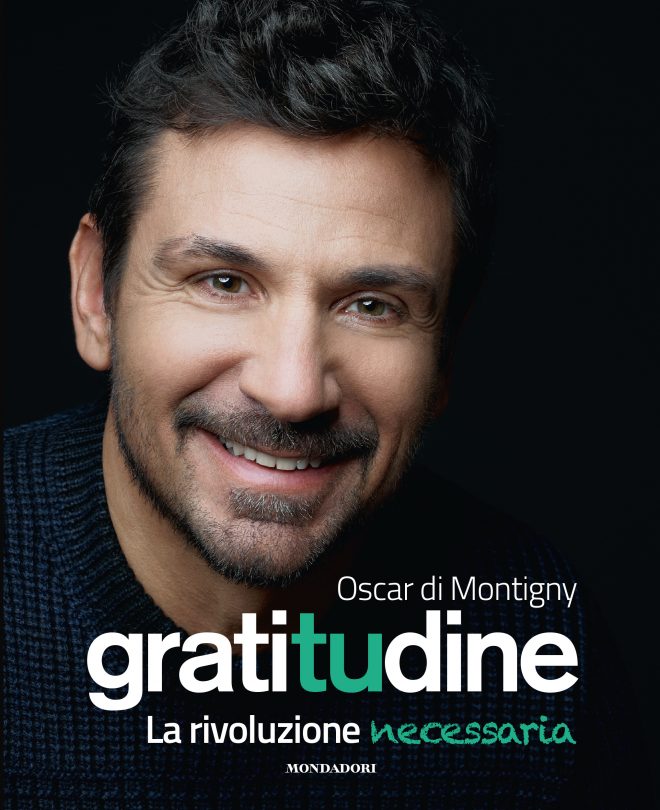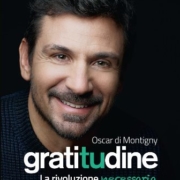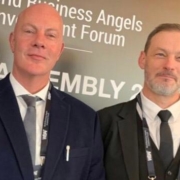This morning, returning from France, we virtually stop in the dynamic and powerful Milan where an exceptional guest is waiting for us, whom we thank from now for having accepted to answer our questions.
What was our existence based on, not only biological but also economic, social, before our system was stopped? Most likely on a very simple concept, linked to our animal roots: mors tua vita mea. And although we have not intentionally put it into practice, held back by a higher conscience, we have accepted compromises that undermine a system balance that has necessarily damaged the mother earth that hosts us and many people who live together on our planet, allocating them to the margins of a society based on an individualism that left no space for inclusion. Was that normal? The lockdown imposed in this pandemic has allowed us to reflect on a personal, economic and social life based on an wrong development model. We need to revolutionize the system through a new way of approaching to the economy and life of each of us and this model is based on Gratitude. It is a profound topic that manages to become a glue for all the countless activities that we carry out within the economic system and beyond. It is the extraordinary possible revolution that each of us can implement to reformulate the functional parameters of a system able to transform it from inefficient and divisive in efficient and inclusive. Through the concept of gratitude we can create benefits for ourselves and for companies. All inextricably linked to sustainability, cooperation (which as we will read, is not simply the absence of competition) and a paradigm composed of 7 P capable of bringing extraordinarily positive effects to ourselves and to the economic and social system.
We will tackle this engaging and special topic with a guest of extraordinary rank: Oscar di Montigny. Top manager of Banca Mediolanum, successful Keynote, communicator and expecially author of best sellers that have shaken the foundations of our thinking.
His latest book entitled “Gratitude. The necessary revolution “(subtitle The person at the center, for a new model of society) is in all italian bookstores since 12nd of May and is already an extraordinary success.
RALIAN – Dott. Di Montigny, you are an important exponent of the contemporary literary panorama besides being Chief Innovation, Sustainability & Value Strategy Officer of Banca Mediolanum, Your latest book entitled Gratitude was recently presented and, as the literary phenomenon of Il tempo dei nuovi eroi (New Heroes’ time – e.n.), is already a bestseller. What is the message that your book wants to give to humanity in this difficult moment, when, to be honest, it seems really paradoxical to be grateful for all that we have lived and for all that awaits us from here to a few years ?
Di Montigny – It may seem paradoxical only if we limit the observation of reality to its surface and contingency. In this case, it may seem normal and right to feel resentment and anger for the damage in terms of human lives and the slowdown in the economy that this invisible enemy has unpredictably caused us. As much as it may seem entirely legitimate to wish to return as soon as possible to that normalcy that we had before the health emergency. However, if we move our observation point slightly and consequently widen the view, we have the opportunity to ask ourselves the only question that today can really mark the turning point. But is this normality that we miss so much, really the best we want to aim for? If we went back a few months ago just to remember what the situation was, we can remember that we were not exactly in what is called an idyll: climate change was looming and it is still looming, democratic systems and the very concept of democracy were shaking because questioned by rampant populism phenomena, collective life showed all its shortcomings and rigidity dictated by that relentless tendency towards individualism of western societies, the market changed at a speed greater than our adaptability, and everything was crushed under the accelerator of technological innovation that kept us subjugated to keep up with the speed making us lose sight of the orientation towards a shared goal for-the-Good of the whole. So, I rephrase the question: are we sure that this is the normality to which we want to return, after having tested the experience directly on our skin, that other social and thought models are possible? Is this not a new, if not the last, opportunity that history has before us to make us change? History has put us in front of the need to adopt some unthinkable behaviors only a few weeks ago, we learned to work from home, to respect the queue and the distance, to protect others by protecting ourselves, to observe the most fragile neighbors to offer support. It seems easy but it is not easy. It is a total paradigm reversal. It is in itself the biggest revolution in very rapid times and without bloodshed we could wish for. Just think of smart working, a model that has been discussed for years and years and that probably, in the absence of real need, would have required as many before going into evaluation, let alone to be adopted in a collegial way as has just happened. Twitter, just to give an example, has already announced that its employees, if they wish, will be able to adopt this method forever in the future. Or think about the protective devices, the thought and attitude behind a simple mask, there is attention to the other, there is the choice to save the other to save ourselves. There is, as my mentor Patrizio Paoletti would say, the choice to decide that ” vita tua vita mea” (your life is my life – e.n.) at the expense of that “mors tua, vita mea” (your death, my life e.n.) that regulated life in the previous normalcy of which we speak. So my answer is yes, we have many reasons to be grateful, the next step to take the evolutionary leap will be to recognize gratitude as a compass that guides our actions and our thoughts, and to generate it in others by starting a beneficial three-dimensional flow that I call Spherical Economy.
Ralian- You have just said that we should move from personal and professional selfishness to a logic of collaboration, of inclusion, a sort of “win to win approach” applied to life in all its facets. In this time in which, especially at the European Union level, a my Country first attitude has prevailed, how is it possible to reverse the trend for widespread and lasting well-being?
di Montigny- Also in this dimension the historical event that involved us is an occasion to be grateful for because it is showing us, right for some countries, what in my opinion was the way already quite clear even before the emergency health, that is that of the coopetition. By analyzing the facts beyond the statements of pure political propaganda, the countries that first had to go through the test, modeled those where the wave came later. This process is called efficiency and essentially shows us two things: first is that all those walls that we were scrambling to build again last year and that held attention in the media and in the public debate, are of no use, on the contrary. The second is that this is the time to put the human being at the center of all systems because in the end there is only one system: life on our Mother Earth. The essence of coopetition, which is the integration between competition and cooperation, is precisely the gratitude that allows you to always keep in focus both the interest of the individual and that of the whole. Feeling gratitude and arousing it in others will be the way to build new and revolutionary social, cultural and business models centered on the human being and therefore capable of achieving harmonious, balanced and inclusive growth.
Ralian – You speak of sustainability, of recovering our responsibility for the destiny of our humanity. In fact, this experience of the coronavirus has shown the human being how much nature can even benefit from our inactivity (I would say absence). What should we change about our way of life in a logic inspired by production and profit to return to being aware and responsible guests of our Planet?
di Montigny. – That’s right, since the stopping of mobility and productivity has involved a few billion people globally, it has happened that pollution levels have dropped and are rapidly falling in the world. In the European Union, daily emissions have fallen by 58% compared to before the crisis. In the US, the government estimates that they will drop 7.5% by 2020. Metropolises such as Beijing, Los Angeles or New Delhi have never looked so clean in recent history. Some of the most immediate changes in Italy have been visible in our daily lives. One example above all was the water of the canals in Venice which came back clear due to the boats that do not move the mud from the bottom when stationary. The theme now will be not to settle for these beneficial side effects produced by a trauma that has had and will have such a high social and economic cost, but neither will let the political and social debate remain focused on minimizing these costs through exclusively oriented measures to the productive recovery tout court. It would be a serious mistake to set the debate on future policies, losing one of the fundamental aspects. It would mean losing that epochal occasion for the paradigm shift we mentioned earlier and that can lead us to define a new possible economy model. If all companies have accepted unprecedented measures such as social distancing, it is desirable to think that the time is right to develop evolutionary systems of the current competitive sustainability model. Productivity, stability, equity and the environment are the four pillars on which to base any human behavior, whether individual, social or productive. So, more than just sustainability, I would speak of Innovability which is the crasis between the concepts of innovation and sustainability.
Ralian. – You also have an apical role within an important banking institution. From economic literature, the concept of business, company, profit is inextricably linked to a hedonistic principle in which the maximization of the result to be achieved is to be placed at the center of the activity put in place. How is it possible to combine profit, financial activity, maximization of economic and financial objectives with a purpose approach as you define it in your book?
di Montigny. – I think one of the great challenges of our future is to find the balance between being and having. Or find a new form of happiness. On the one hand we must find the balance between being and having and, on the other, each of us, individually, must find the balance between what is important and what makes us happy and what is not needed and that does not deserve our anxiety, because it is no longer possible to rely only on generic indicators imposed from above: what applies to you may not apply to me. Nobody can tell you what will make you happy: you have to find out for yourself. The economy should be a discipline that investigates what is right and therefore as such, it should guide our society. Every act we make, every purchase, even banal, and every choice is an economic act. Knowing how to ask the right questions, knowing how to investigate the truth of things and knowing how to do everything in the best way, every day, is the only thing that will save us. It is necessary to stimulate man’s ability to acquire new tools to live better and pursue the collective good.
Ralian. – You speak of Spherical Economy and of possible Revolution. Could you briefly explain to us what these concepts consist of and how they can help us in this period in which businesses and people have to give way to all the courage, resilience and dynamism possible?
di Montigny – We must start from the circular economy, born above all as a contrast to the old “linear economy”, which is founded on three guiding objectives: to reduce, reuse and recycle. That is, to achieve the same good or service with a lower consumption of resources, favoring those with less impact on the environment; use the same asset several times, avoiding the consumption of raw materials and reducing waste and the need to dispose of them and finally, when a good has reached the end of its life, recover the contained material and transform it so that it can be reused, reducing disposal and consumption. In summary, the circular economy foresees that in all phases, from design, production, consumption, to the end of life destination, the inputs of material and energy and waste and losses are limited, paying attention to the prevention of negative environmental externalities and the realization of new social value in the territory. This however, is an emergency solution that moves in a flat and two-dimensional dimension that will no longer be enough tomorrow. In the longer term, I believe that the concept of circularity must develop an extra dimension, and move on to the spherical economy plan whose model starts from the seventeen Sustainable Development Goals set by the United Nations in 2013, the Sustainable Development Goals ( SDGs) which have been grouped into the five “P’s” of Planet, Peace, People, Partnership and Prosperity, each of which refers to a system of strategic choices divided into national objectives. In the Spherical Economy model, the Ps become seven. In fact, specific attention must be added to the dimension of profit (Profit), which should not be criminalized and should not be understood as synonymous with Prosperity since one contains the other but not vice-versa, and that of the individual, or better yet, of the person ( Person), without which no real change can ever be made. This leads to 7 P, where Person’s P gives a new dimension to everything, to make the model evolve from circularity to sphericity. A model that is configured as a non-linear or two-dimensional but three-dimensional growth and therefore solid, harmonious, balanced and contemporary, therefore spherical, of the 17 SDGs. And gratitude represents its vital energy.
Ralian – Can you leave us 3 Golden Words that can act as a mantra in our actions and, above all, in the recovery of a social and economic life that, in all respects, seems to have been stolen from us?
di Montigny – With pleasure, entrepreneurial mind, social heart and ecological soul will be needed.
This is the approach that we must use to reverse the course. In this re-start, no one must be left behind and through this extraordinary system in which man is at the center, we will be able to combine progress, economic development, sphericity, social inclusion and environmental sustainability. Revolution possible. The real one.
We wholeheartedly thank dr. of Montigny for his extraordinary availability and for the injection of positivity and for the depth of the topics he wanted to share with us.
Milan is the symbol of the dynamism of the Italian economy, the capital of the italian region that paid the highest tribute in this emergency. We will stay here and, in the next appointment, always in front of a virtual coffee, we will talk about economics, logistics, culture and art and we will do it with another extraordinary guest.
See you soon!
RALIAN Research & Consultancy srl
© Copyright 2020. All Rights reserved.













